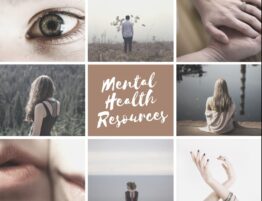
*The following is excerpted from an online article posted on PsychCentral.
Emerging psychological research from Michigan State University suggests fond memories of childhood are linked to better health, less depression and fewer chronic illnesses in adulthood.
“We know that memory plays a huge part in how we make sense of the world — how we organize our past experiences and how we judge how we should act in the future. As a result, there are a lot of different ways that our memories of the past can guide us,” said William J. Chopik, Ph.D., lead author of the study.
“We found that good memories seem to have a positive effect on health and well-being, possibly through the ways that they reduce stress or help us maintain healthy choices in life.”
The research is published by the American Psychological Association in the journal Health Psychology.
The researchers used data from two nationally representative samples, the National Survey of Midlife Development in the United States and the Health and Retirement Study, with a total of more than 22,000 participants.
The first study followed adults in their mid-40s for 18 years and the second followed adults 50 and over for six years. The surveys included questions about perceptions of parental affection, overall health, chronic conditions and depressive symptoms.
Participants in both groups who reported remembering higher levels of affection from their mothers in early childhood experienced better physical health and fewer depressive symptoms later in life. Those who reported memories with more support from their fathers also experienced fewer depressive symptoms, according to Chopik.
“The most surprising finding was that we thought the effects would fade over time because participants were trying to recall things that happened sometimes over 50 years ago. One might expect childhood memories to matter less and less over time, but these memories still predicted better physical and mental health when people were in middle age and older adulthood,” said Chopik.
“These results may reflect the broader cultural circumstances of the time when the participants were raised because mothers were most likely the primary caregivers,” said Edelstein. “With shifting cultural norms about the role of fathers in caregiving, it is possible that results from future studies of people born in more recent years will focus more on relationships with their fathers.”
Source: PsychCentral
https://psychcentral.com/news/2018/11/06/happy-childhood-memories-linked-to-better-adult-health/140125.html
Source: Home Word





